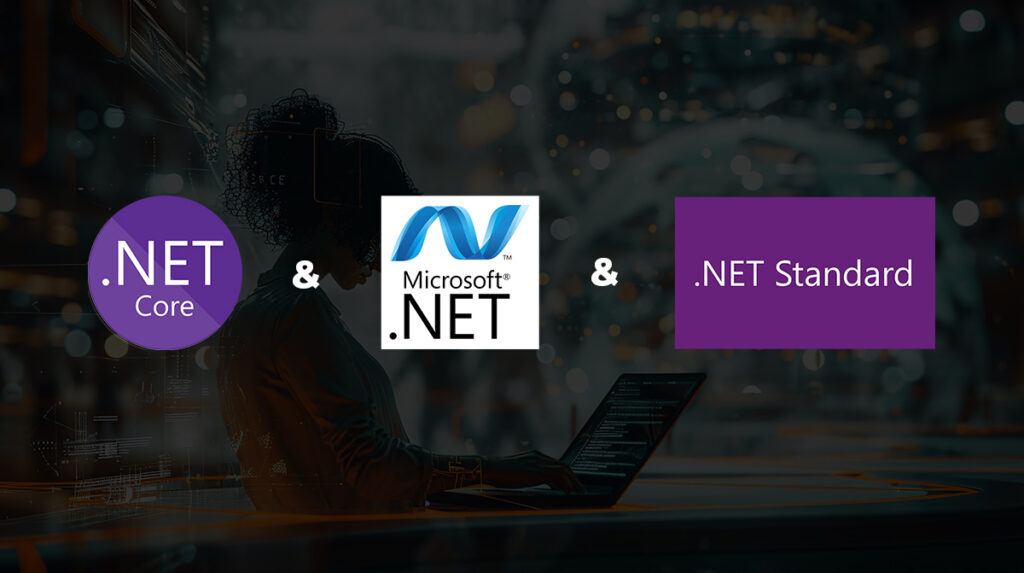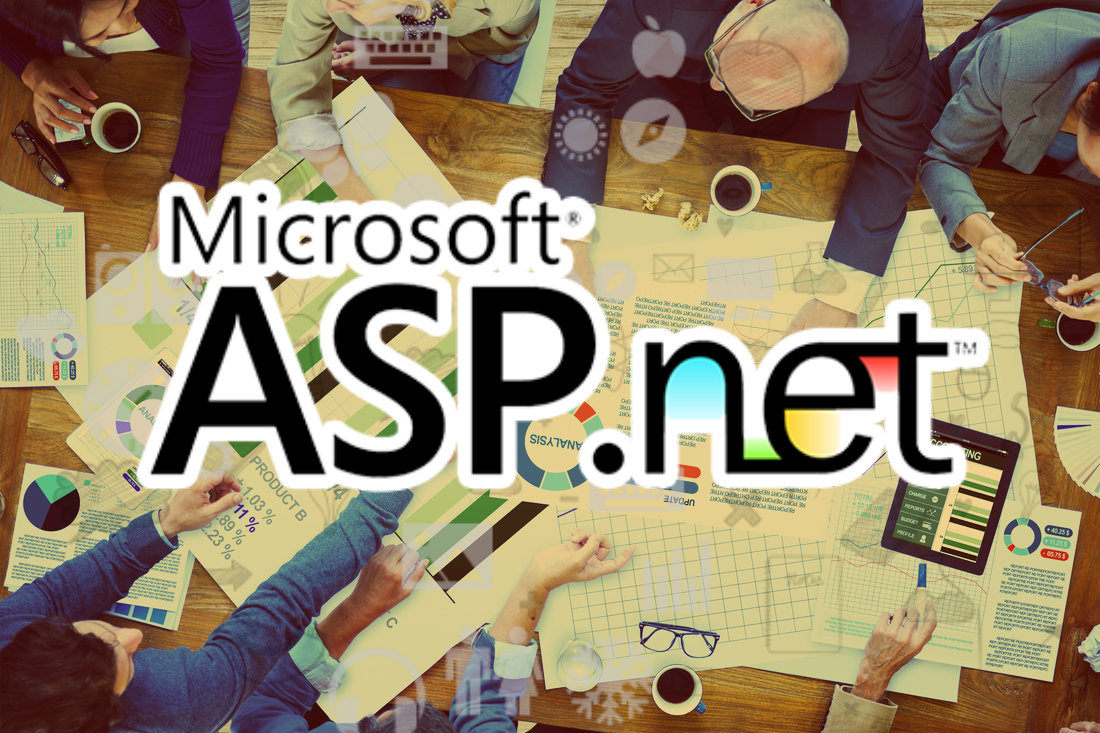
Developers often manage and work on a couple of projects associated with .NET framework, .NET Core, and .NET Standard.
However, budding as well as experienced developers often find it difficult to trace the difference between .NET Standard and .NET Framework.
To clear all your misinterpretations regarding .NET, we have clarified the following concepts in this blog:
- The Significance of .NET Framework
- The Upsurge of .NET Core
- Understanding .NET Standard
- Misperception Regarding .NET Standard
- Difference Between .NET Core and .NET Framework
- Major Difference Between .NET Core, .NET Framework, and .NET Standard
The Significance of .NET Framework
In the early 2000s, Microsoft developed an authentic .NET implementation named as .NET Framework. They wanted to utilize .NET Framework to build desktop and web applications for Windows.
This .NET solution empowers developers to write applications in Visual Basic, C#, and F#.
.NET environment offers a couple of services to its running applications and it is a first-class library to write a variety of applications.
The following components play an integral role in .NET Framework:
- Base Class Library(BCL)- This is a library of well-tested and reusable codes that developers can easily use in their applications.
- Common Language Runtime (CLR)- This helps to manage execution of applications.
Any code written in .NET supported language is compiled in a special language referred to as IL or Intermediate Language. These codes are stored in assembly files with either .exe or .dll file extension.
.NET Framework also offers multiple services to its running applications such as-
- Language interoperability
- Memory management
- Common type system, and many more.
The Upsurge of .NET Core
With the rise of intelligent technologies and cloud computing, development trends have also evolved. There is an upsurge in using other operating systems along with Windows.
Diverse software and services are developed for different platforms. To suffice these versatile needs, Microsoft developed a new framework to satisfy current as well as future software development needs.
This led to the birth of a new framework called .NET Core. This .NET open source framework enables smooth cross-platform implementation.
While there are a few similarities between .NET Core and .NET Framework, they have some striking differences that set them apart. There are several features and functionalities to differentiate them.
You can naturally observe and trace these differences while working on .NET projects. You can also ask an expert for in-depth understanding.
Understanding .NET Standard
.NET Standard is not an implementation – it is a specification that defines different APIs provided by implementing .NET.
This specification accumulates all APIs across varied environments and reduces the code sharing issues for developers. .NET Standard can be referred to as a beneficiary of the portable class library.
In simple words, .NET Standard states the APIs that need to be implemented.
Misperception Regarding .NET Standard
A budding developer is prone to getting confused while understanding .NET Standard.
When a developer starts Visual Studio 2019, and clicks on the create a new project tab, they are bound to come across three types of class library projects-
- Class Library (.NET Framework)
- Class Library (.NET Standard)
- Class Library (.NET Core)
A concise description on Class Library (.NET Core) and Class Library (.NET Standard) states that their respective target platforms are .NET Core and .NET Standard.
This often leaves developers confused because .NET Standard is a completely different implementation or framework of .NET family.
When you move further to create separate projects for each platform, you are bound to check their properties. Each property window indicates a field option Target framework.
This field option fits well with .NET core and .NET Framework projects. However, the same option can be confusing for .NET Standard project.
In fact, most emerging developers assume that .NET Standard is a framework not a specification. It’s a specification and not an implementation or framework.
Difference Between .NET Core and .NET Framework
So far, you may have developed an understanding that .NET Core and .NET Framework are two different implementations.
.NET Core
- This is the latest implementation of .NET; it is open-source.
- .NET Core runs on Linux, Windows, and macOS.
- Microsoft provides consent for third-party contribution to .NET Core.
- .NET Core supports in-app deployment models.
- Supports desktop frameworks such as WPF from and above version 3.0 and Windows Forms.
- It’s an ideal pick to work with Docker containers.
- .NET Core has enabled third-party packages but cannot surpass .NET Framework in this area.
.NET Framework
- This is the first implementation of .NET and functions on Windows only.
- Although its source code is public, Microsoft restricts third-party contributions.
- A massive third-party package library is available.
- .NET Framework has an enriched desktop development framework for Windows inclusive of WPF and Windows Forms.
- It supports a Docker container but its image size can be deployed on windows containers.
- .NET Framework fails to support in-app deployment model.
Major Difference Between .NET Core, .NET Framework, and .NET Standard
We have discussed key differences among .NET implementations (.NET Core and .NET Framework) and specification (.NET Standard).
.NET Standard
- The main difference between is that .NET Standard is a specification while the rest are implementations.
- .NET Standard specifies a set of APIs suitable for implementation of all .NET implementations.
- Only creates class library type projects.
.NET Core and .NET Framework
- The .NET Core and .NET Framework are .NET implementations.
- Both frameworks comprise the base class library.
- Both frameworks have runtime that ensure timely execution of applications.
- Both frameworks support creation of different types of projects.
Takeaway
There are several aspects to consider while choosing a target platform and the right version. An experienced ASP.NET Core Development Company can assist you in the process, and guide you to make the right choice as per your project requirements.
Our experts will be glad to resolve your queries personally.
Related Articles
-
More Trending Ideas To Earn Via Mini .Net Development Projects
Talking About More Trending Ideas To Earn Via Mini .Net Development Projects, The emergence of ASP.Net has widened the gateways to develop all industry-specific projects within a shorter timeframe and
-
Microsoft Releases .NET 9 Preview 7 with New Features and Updates
Microsoft’s .NET 9 Preview 7 offers a glimpse into the future of ASP.NET development. It has new features, performance enhancements, and expanded cross-platform capabilities. This latest release aims to streamline
-
5 Ways To Supercharge The ASP.NET App Performance
ASP.NET is considered as the best technology to build the applications that perform at speed. Also, it makes the app hosting on the server plain-sailing. But, syncing the app with



